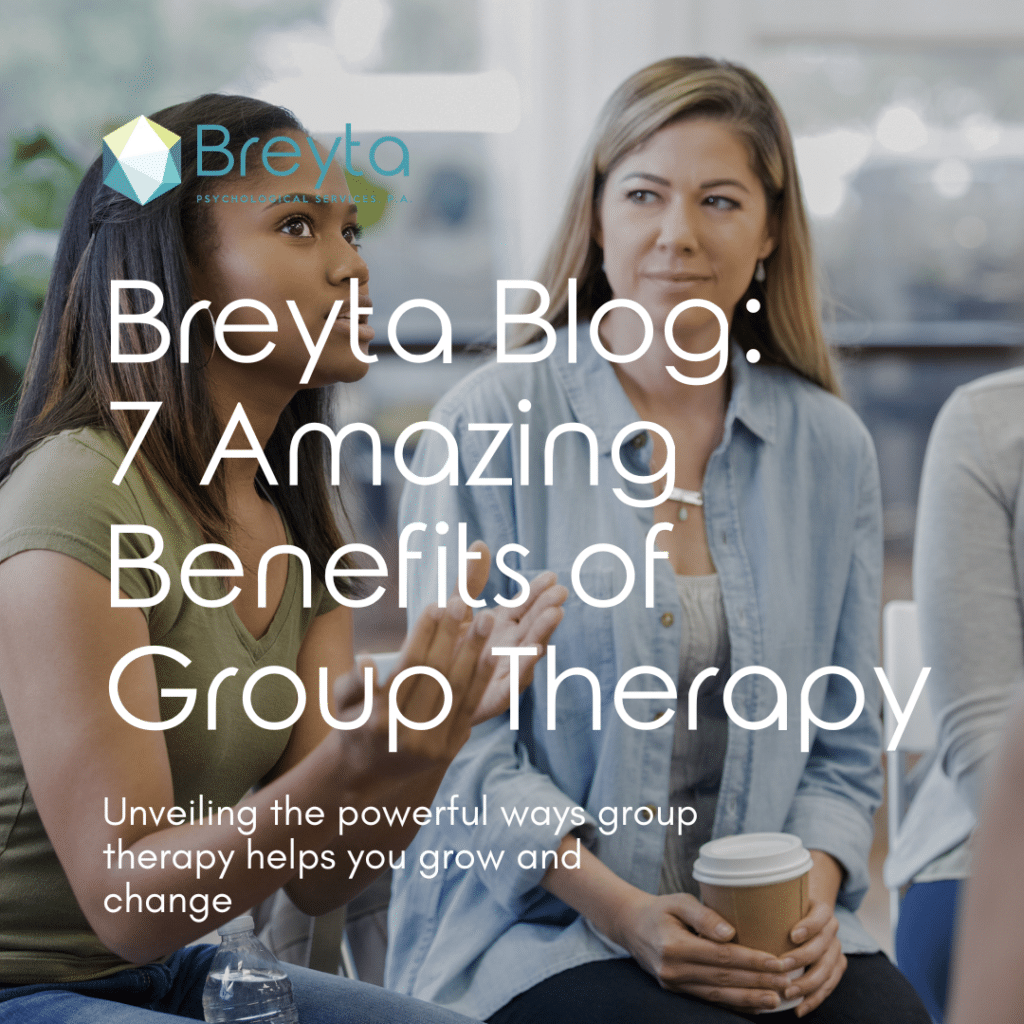PTSD Treatment & Trauma Recovery in Raleigh
You don’t have to live in the shadow of your past any longer. As PTSD and trauma experts, we’re here to let you know that recovery is possible. Trauma and PTSD treatment help you change your relationship to traumatic memories so you can once again embrace the present moment.

Regain Peace of Mind Through Trauma & PTSD Treatment
Our emphasis on trauma-informed evidence-based practice ensures that you are matched with a clinician who will utilize the best available evidence-based treatment. We have the clinical expertise to apply effective methods skillfully and will partner with you to base your care on your particular needs and preferences. Our work with you will be individualized and effective, moving you toward your life and wellness goals. We utilize gold-standard evidence-based interventions for trauma, such as Cognitive Processing Therapy (CPT), Prolonged Exposure Therapy (PE), Acceptance and Commitment Therapy (ACT), and Cognitive Behavioral Therapy (CBT).
Enhance Emotional Regulation
Through trauma & PTSD therapy, you can gain greater self-awareness and mindfulness, helping to stabilize your emotions.
Reduce Avoidance Behaviors
Treatment helps to address avoidance behaviors, allowing you to reengage in activities you might have been avoiding.
Strengthen Support Systems
Trauma & PTSD therapy provides you with compassionate support, allowing you to build trust and deepen connections with others.
Develop Coping Strategies & Cognitive Skills
As you learn to reframe the traumatic experience and change your relationship to it, you will become equipped with the skills and strategies that allow you to better manage and cope with symptoms.
Self-Compassion and Agency
As you regain a sense of control over your life, you’ll begin to experience a boost in self-esteem, self-trust, and self-confidence.
Improved Quality of Life
Less trauma & PTSD symptoms means greater peace, improving your quality of life, from better sleep to embracing the moment.
Types of Trauma We Work With
- Adjustment Disorders
- Sexual Trauma
- Psychological Abuse
- Physical Abuse
- Childhood Trauma/Abuse/Neglect
- Interpersonal Trauma and Intimate Partner Violence
- Acute Trauma, Chronic Trauma, Complex Trauma
- Complex PTSD
- Chronic PTSD and Trauma-Related Disorders
- Combat Trauma and Military Sexual Trauma (MST)
- Vicarious Trauma
- Crime & Accidents
- Man-Made and Natural Disasters
- Medical Trauma
- Religious Trauma
- Generational Trauma
- Birth Trauma and Obstetric Violence
Feeling lost or stuck? Let Breyta be your North Star.
If you are caught in the ebbs and flows of the waves of emotion, or frozen in an iceberg of numbness, we will help you navigate the way forward. Contact our trauma-informed therapists today. We will be your North Star.
Embarking on Your Path to Meaningful Change

Fill Out Our
Contact Form
Begin by filling out the contact form where you can request a 15-minute consultation or initial intake session.

Choose Your Provider &
Schedule Initial Session
We’ll get in touch with you to help you choose your provider and schedule your consultation or intake session.

Complete Your
Intake Paperwork
Complete your intake paperwork within 24-hours of your initial appointment to hold your session time.

Therapy to Change the Tides of Trauma
Have you experienced an extremely stressful life transition, abusive relationship, combat trauma, physical or sexual assault, or other traumatic event? Do you find that those memories are popping up in the form of traumatic flashbacks or memories even when you don’t want to think about it? Have you noticed that you are jumpy, nervous, fearful, avoidant of people, places, activities? If so, these are clear signs that you may benefit from meeting with a psychologist to discuss the impact of what you went through. These are common posttraumatic symptoms. They’re a normal response to an abnormal event. It’s not your fault if you’re experiencing them and we know how difficult it is to live with them, but recovery is absolutely possible.
Our trauma-informed psychologists are experts in the assessment, diagnosis, and treatment of PTSD and trauma-related disorders. You deserve to work with a therapist with the specialized training needed to provide trauma-informed care. Our team of trauma-informed clinicians is trained in the many nuances of trauma and its impacts. We will create a safe space for you to feel calm and cared for as you work towards recovery.
With the help of a specialized trauma & PTSD therapist, you will gain a personalized plan to manage your symptoms so you can get back out there and live well. Thanks to newer models of therapy like Cognitive Behavioral Therapy (CBT) and Acceptance and Commitment Therapy (ACT), you no longer have to wake up every day with a sense of dread, feeling stuck in place – but rather with a renewed sense of hope and the motivation to engage in positive change.
Find Your Flow with Breyta
You can’t control the waves, but we can help you surf them.
Our approach creates the ripples of change.

Specialized Treatment: Trauma-Informed Care
The entire Breyta experience has been carefully structured through trauma-informed methodology; from our dedicated team of trauma-informed therapists, all of whom provide care with the utmost sensitivity and intentionality, to our waiting room and offices, all designed from a trauma-informed lens.

Elevated Expertise: Doctoral-Level Psychologists
In order to provide the highest level of psychological care, every one of our clinical psychologists has received their doctorate in the mental health field. We use our specialized knowledge and expertise to offer the most comprehensive and innovative therapeutic approaches.

Innovative Techniques: Process-Based Psychotherapy
Through process-based therapy, the most innovative form of evidence-based therapy, we gain a comprehensive understanding of what makes you who you are, including the core processes keeping you stuck. We then intentionally choose a unique combination of evidence-based approaches to create the most effective treatment plan for you.

Personalized Approach: Client-Centric Practice
The experiences that have shaped you and how you processed them are completely unique. Our client-centric approach to therapy is just as personal, placing you at the center of your care. The specific therapy you receive is a direct reflection of you, evolving with you as you heal and grow.
Frequently Asked Questions:
PTSD and trauma-related symptoms can show up differently for everyone. However, here are some of the most commonly experienced indicators that you are living in a state of trauma:
- Experiencing uncontrolled traumatic flashbacks or memories
- Being jumpy, nervous, and fearful
- Avoidant of people, places, activities that used to bring you joy
- Trouble concentrating
- Feeling irritable or on edge
- Can’t stop scanning your environment
- Prefer to sit facing doors or exits
- Having negative thoughts about yourself, the world, or others
The symptoms mentioned above are only a few examples of the way our minds and bodies respond to trauma. We understand these symptoms can feel terrifying, frustrating, and can significantly impact your ability to live your life. It’s important to know that these are normal responses to an abnormal event; it’s your body’s way of trying to respond protectively. While trauma may have temporarily disrupted your nervous system, trauma therapy can help you rediscover balance.
Our treatment approach entails key components necessary for trauma recovery:
• Psychoeducation
• Anxiety management
• Assistance in facing your fears and processing your memories (exposure)
• Helping to shift from the way your brain has been wired by trauma
The American Psychological Association clinical practice guidelines for the treatment of PTSD strongly recommend Cognitive Therapy (CT), general Cognitive Behavioral Therapy (CBT), as well as two evidence-based forms of cognitive behavioral treatment specifically designed to treat PTSD: Prolonged Exposure Therapy (PE) and Cognitive Processing Therapy (CPT). Breyta offers both general Cognitive Behavioral Therapy as well as PE and CPT. Moreover, we offer cutting-edge approaches to treating trauma that are at the frontier of the cognitive behavioral therapy world, such as Acceptance and Commitment Therapy (ACT) and mindfulness-based approaches.
Yes, we are experts in the assessment and treatment of all forms of trauma:
- Acute Trauma: it happened once
- Chronic Trauma: a type of trauma happened several times or the trauma is of an extended and ongoing nature
- Complex Trauma: also referred to as Complex PTSD or C-PTSD; the experience of multiple types of traumas over a long period of time
You may also hear the terms “Big T” trauma and “little t” trauma. These phrases refer to the nature of the trauma, rather than the frequency or duration. For example, “Big T” trauma is used to refer to experiences that are life-threatening. These are events that we traditionally think of when we hear the word “trauma”, such as accidents, combat, chronic abuse or neglect, assault, witnessing another’s trauma, or experiencing a natural disaster. Alternatively, “little t” traumas are events that are considered traumatic on a personal level to the individual who experiences them, but may not be considered traumatic universally. Examples may be divorce, a difficult breakup, loss of a pet, a difficult move, professional stress or changes, financial stress, chronic pain, or a medical issue.
While only “Big T” trauma is part of the criteria for a PTSD diagnosis, it is still vitally important to acknowledge and understand the impact and role that “little t” trauma plays in your life. In fact, “little t” trauma is part of why it’s so important that you’ve chosen a trauma-informed care provider. The fact that there are so many things that are deeply stressful, if not traumatic, to us as individuals throughout our lives often goes unnoticed by those who don’t know how to look. When this internal stress isn’t acknowledged, it gets compounded by other issues you may be facing and can make your problems worse. Our thorough assessment and seasoned trauma-informed psychologists will ensure that you receive the compassionate and effective care that you deserve.
EMDR is a treatment that was invented in the late 1980s that combines moving one’s eyes from side to side, processing trauma memories and making positive associations. Some have successful experiences with EMDR, while many others have unsuccessful or even harmful ones. It is important to note that the central critique of this therapy is that the mechanisms of change (i.e., the reasons why it is effective in decreasing PTSD symptomatology) are actually due to components of Cognitive Behavioral Therapy inherent in the treatment, rather than the other more dramatic aspects of EMDR. These include exposure to the feared stimulus (trauma memories and emotions), reframing negative cognitions and establishing balanced or positive thoughts associated with the one’s ability to access the memory or the capability of handling the memory, behavioral relaxation skills, coping skills, and the therapeutic relationship.
In studies, it is shown to be better than no treatment at all, as are most therapies. However, it is not superior to actual Cognitive Behavioral Therapies, which is proven to be far more effective. For a now seminal article critiquing the scientific integrity of EMDR, we recommend reading this one in Scientific American.




